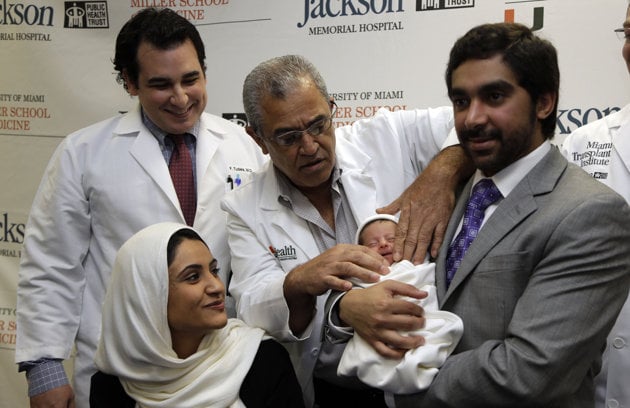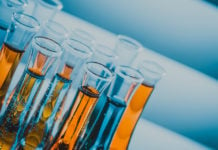Organ transplantation is a critical medical procedure that saves countless lives each year. It involves replacing a failing organ with a healthy one from a donor, either living or deceased. This paper explores the history, process, types, ethical considerations, and challenges of organ transplantation. Furthermore, it highlights the significance of organ donation and the role of medical advancements in improving transplant success rates.
Introduction
Organ transplantation is a revolutionary medical procedure that has significantly improved the quality of life for patients with organ failure. It is a complex yet life-saving process that requires careful donor matching, surgical expertise, and post-transplant care. Despite its benefits, organ transplantation presents several challenges, including organ shortages, ethical dilemmas, and immune system rejection. This paper discusses the importance of organ transplantation, the process involved, and the ongoing developments in this medical field.
History of Organ Transplantation
The concept of organ transplantation dates back to ancient times, but modern transplantation became feasible in the 20th century. The first successful kidney transplant was performed in 1954 by Dr. Joseph Murray, marking the beginning of a new era in medicine (Murray, 1992). Over the years, advancements in immunosuppressive drugs, surgical techniques, and donor matching have significantly improved transplant success rates.
Types of Organ Transplants:
There are several types of organ transplants, including:
Kidney Transplant: The most commonly performed transplant, often used to treat end-stage renal disease (United Network for Organ Sharing UNOS, 2021).
Liver Transplant: Performed for patients with liver failure or severe liver diseases such as cirrhosis (Starzl, 2012).
Heart Transplant: A life-saving procedure for patients with severe heart failure (Yancy et al., 2013).
Lung Transplant: Used for patients with chronic obstructive pulmonary disease (COPD) or cystic fibrosis (Orens et al., 2006).
Pancreas Transplant: Helps patients with type 1 diabetes regulate blood sugar levels (Sutherland et al., 2001).
Intestinal Transplant: Performed in patients with short bowel syndrome or intestinal failure (Grant et al., 2005).
The Organ Transplant Process
The organ transplant process involves multiple steps:
Evaluation and Listing: Patients undergo medical evaluations to determine their eligibility. If approved, they are placed on a transplant waiting list.
Finding a Match: Donor organs are matched with recipients based on factors like blood type, tissue compatibility, and medical urgency (UNOS, 2021).
Surgery and Recovery: The transplant surgery is performed, followed by a recovery period and continuous monitoring to prevent organ rejection.
Ethical Considerations in Organ Transplantation
Ethical concerns surrounding organ transplantation include:
Fair Organ Allocation: Ensuring organs are distributed fairly and based on medical necessity rather than socioeconomic status (Childress & Liverman, 2006).
Living Donor Risks: Addressing the risks faced by living donors, including surgical complications and psychological impact (Matas & Schnitzler, 2004).
Consent and Donation: The debate over presumed consent versus explicit consent for organ donation (English & Sommerville, 2003).
Challenges in Organ Transplantation: Organ transplantation faces various challenges, such as:
Organ Shortage: The demand for donor organs far exceeds the supply, leading to long waiting lists (UNOS, 2021).
Rejection and Complications: The recipient’s immune system may attack the new organ, requiring lifelong immunosuppressive therapy (Halloran, 2004).
Cost and Accessibility: Transplant procedures are expensive, limiting access for many patients (Schoenberg et al., 2018).
Medical Advancements in Organ Transplantation
Recent developments in organ transplantation have improved success rates, including:
3D Bioprinting: Scientists are exploring 3D printing to create artificial organs (Jang et al., 2020).
Xenotransplantation: The use of animal organs for human transplants is being researched (Cooper et al., 2016).
Stem Cell Therapy: Stem cells are being studied to regenerate damaged organs (Trounson & McDonald, 2015).
Conclusion
Organ transplantation is a life-saving medical procedure that has transformed modern medicine. Despite challenges like organ shortages and ethical dilemmas, ongoing research and technological advancements continue to improve transplant success rates. Increasing awareness about organ donation and improving transplant accessibility can further enhance the impact of this critical medical practice.
Reference
1. Organ Procurement and Transplantation Network. (2021). Annual data report. https://optn.transplant.hrsa.gov/data/annual-report/
2. Reese, P. P., Boudville, N., & Garg, A. X. (2015). Living kidney donation: Outcomes, ethics, and uncertainty. The Lancet, 385(9981), 2003-2013. https://www.thelancet.com/journals/lancet/article/PIIS0140-6736(14)62484-4/fulltext
3. National Kidney Foundation. (2021). Organ donation and transplantation statistics. https://www.kidney.org/news/newsroom/factsheets/Organ-Donation-and-Transplantation-Stats
4. Abouna, G. M. (2008). Ethical issues in organ transplantation. Medical Principles and Practice, 17(3), 203-217. https://www.karger.com/Article/Abstract/110597
5. Murray, J. E. (1992). The first successful organ transplants in man. Journal of the American College of Surgeons, 175(5), 433–439. https://doi.org/10.1016/S1072-7515(05)80188-1
6. United Network for Organ Sharing (UNOS) (2021). Organ donation and transplantation statistics. https://optn.transplant.hrsa.gov/data/annual-report/
7. Starzl, T. E. (2012). The puzzle people: Memoirs of a transplant surgeon. University of Pittsburgh Press. https://www.upress.pitt.edu/BookDetails.aspx?bookId=36164
8. Yancy, C. W., Jessup, M., Bozkurt, B., et al. (2013). 2013 ACCF/AHA guideline for the management of heart failure. Circulation, 128(16), e240–e327. https://doi.org/10.1161/CIR.0b013e31829e8776
9. Childress, J. F., & Liverman, C. T. (Eds.). (2006). Organ donation: Opportunities for action. National Academies Press. https://doi.org/10.17226/11643
10. Jang, J., Kim, T. G., Kim, B. S., et al. (2020). 3D bioprinting for organ regeneration. Advanced Healthcare Materials, 9(1). https://doi.org/10.1002/adhm.201900754
11. Cooper, D. K. C., Gaston, R., Eckhoff, D., et al. (2016). Xenotransplantation: Progress toward clinical reality. Transplantation, 100 (12), 2573–2580. https://doi.org/10.1097/TP.0000000000001404












